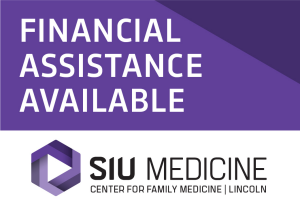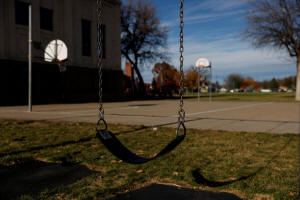U.S. experts urge anxiety screening for children 8 and older
 Send a link to a friend
Send a link to a friend
 [October 12, 2022]
By Julie Steenhuysen [October 12, 2022]
By Julie Steenhuysen
CHICAGO (Reuters) - An influential panel of
U.S. experts recommended for the first time on Tuesday that primary care
doctors screen all children ages 8 to 18 for anxiety, even if there are
no symptoms.
The recommendations by the U.S. Preventive Services Task Force, a group
of disease prevention and medical experts assembled by the U.S.
Department of Health and Human Services (HHS), come at a time of rising
rates of diagnosed mental health disorders among American young people.
"Anxiety is the most common mental health condition in children and
youth," said task force member Dr. Martha Kubik, a professor at George
Mason University's nursing school.
The task force defined anxiety as a group of related conditions
characterized by excessive fear or worry that manifest as emotional and
physical symptoms. It recommended using screening questionnaires to
identify children at risk, noting that studies show that children with
such conditions benefit from treatment that may include cognitive
behavioral therapy or psychotherapy.

Experiencing anxiety can be debilitating for a young person and it
increases the risk for anxiety in adulthood as well as other conditions
such as depression, Kubik said. Screening can identify children who
should be referred for a formal evaluation, Kubik added.
The screening for anxiety received what is called a "B" recommendation,
meaning the task force concluded with "moderate certainty" that the
benefits of screening outweigh the harms. The task force said there was
not enough evidence for screening children under age 8.
The recommendations, published in the Journal of the American Medical
Association, were based on a review of evidence on screening and
treatment for anxiety in children and adolescents, the task force said.
A draft version of the recommendations was unveiled in April.
In an editorial accompanying the task force's advice, Dr. John Walkup of
the Ann and Robert H. Lurie Children's Hospital in Chicago and
colleagues noted that the majority of psychiatric disorders, including
the anxiety disorders, arise in childhood and adolescence, and welcomed
the screening recommendations.
[to top of second column]
|

An empty swing hangs on a playground at
a middle school in Nampa, Idaho, U.S., October 29, 2021.
REUTERS/Shannon Stapleton/File Photo
 The number of U.S. children ages
3-17 diagnosed with anxiety rose by 29% from 2016 to 2020 and those
diagnosed with depression rose by 27% during the same time period,
an HHS study released in March showed. Experts have said the trend
has been worsened by issues relating to the COVID-19 pandemic.
The task force issued similar draft guidelines last month
recommending screening adults ages 64 and younger for anxiety. Those
are still subject to revision prior to being finalized.
In addition, the task force reaffirmed its previous recommendation
for screening of children starting at age 12 without symptoms for
depression but determined there was not enough evidence to endorse
such screening in younger children.
The task force similarly found insufficient evidence to recommend
routine screening of asymptomatic children or adolescents for
suicide risk.
Suicide is the second-leading cause of death among Americans ages
15-24, behind only accidents. The American Academy of Pediatrics,
American Foundation for Suicide Prevention and experts from the U.S.
government's National Institute of Mental Health in March
recommended suicide screening for children starting at age 12.
Dr. Oscar Bukstein, a professor of psychiatry who trains
pediatricians in mental health screening at Harvard-affiliated
Boston Children's Hospital, said the biggest challenge in addressing
U.S. youth suicide is not identifying those at risk.
"The crisis is having the appropriate treatment settings to treat
all of these kids who are suicidal," said Bukstein, who wrote an
editorial in the journal accompanying the depression and suicide
recommendations.
(Reporting by Julie Steenhuysen; Editing by Will Dunham)
[© 2022 Thomson Reuters. All rights
reserved.] This material may not be published,
broadcast, rewritten or redistributed.
Thompson Reuters is solely responsible for this content.
 |